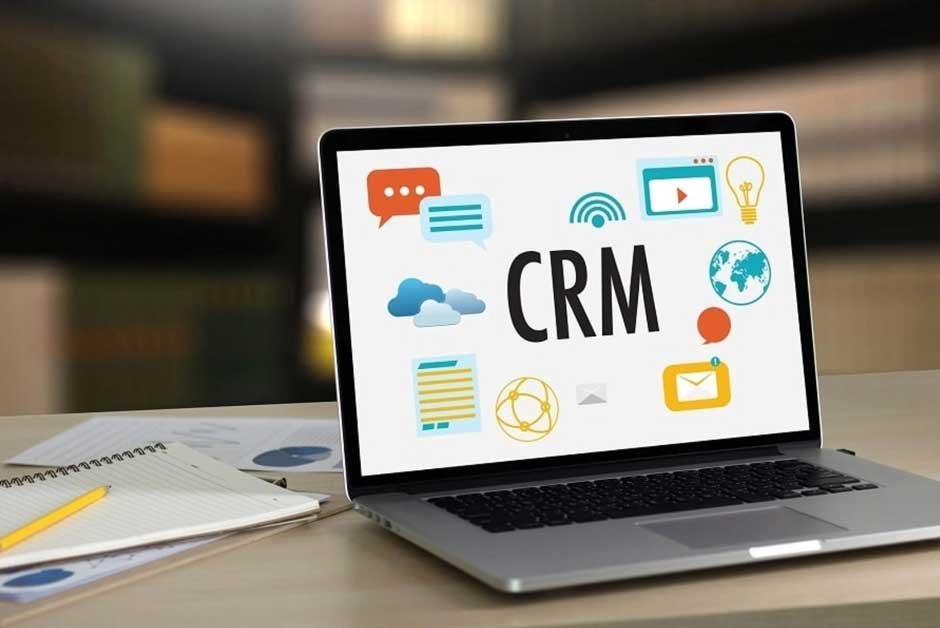Introduction
In today’s competitive business world, small businesses have to deal with two problems: developing long-term connections with customers and making the most of their limited resources. To grow, you need to not only get new customers but also keep the ones you already have by giving them consistent, personalised experiences. This is when a Customer Relationship Management (CRM) system becomes quite useful. CRM software used to be thought of as something only big companies could use, but it is now easier to get and necessary for small businesses that want to make their operations more efficient, get more customers, and develop their businesses faster. A well-implemented CRM may change the way small businesses work and grow by centralising data, automating communication, and giving them useful information.
Centralized Data Management: The Foundation of Efficiency
Small firms struggle to manage scattered client data. Spreading emails, phone records, invoices, and social media conversations across platforms fragments data. A CRM centralises this data in an easy-to-find database. Every call, email, and meeting note is kept and accessible.
Centralisation reduces errors, time, and duplication. Small firms need efficiency since employees often handle many tasks. A CRM saves employees from going through disorganised paperwork or relying on memory to recall interactions. They can view a customer’s whole history immediately instantly, making discussions more professional, consistent, and informed. The firm functions more smoothly and accomplishes more. microsoft dynamics CRM online professional streamlines customer management.
Streamlining Sales Processes
Small businesses may struggle to convert leads into paying customers. A CRM system offers the sales funnel structure and intelligence, preventing missed opportunities. It tracks leads from initial contact until sale. This makes it easier to identify high-converting leads.
Lead scoring, automated reminders, and progress tracking help sales teams prioritise. CRM solutions may also help identify sales funnel issues like prospect dropoff. This data may help small businesses improve sales, increase sales, and estimate revenue.
Empowering Marketing with Data-Driven Insights
Marketing requires understanding client behaviour and tailoring strategies to it. CRM systems help small businesses sell their products and services more efficiently using data-driven insights. By looking at client demographics, buying behaviour, and engagement, businesses may segment their audience and create targeted ads.
Modern CRMs support email, social media, and advertising. This allows small firms to automate marketing operations like delivering customised emails and tracking campaign performance. CRM analytics should be used to send audience-specific messaging. This increases engagement and conversions. This tailored marketing increases sales over time and reduces unnecessary ad spending, so every marketing pound matters.
Automation: Saving Time and Reducing Manual Work
Automation is a key way CRM can transform small businesses. Send follow-up emails, change contact information, schedule meetings, and measure sales progress using automation. This simplifies staff chores, allowing them to focus on more vital activities like networking and sales.
Automation also ensures consistency. All leads, opportunities, and consumer questions are addressed immediately. This reaction makes a firm appear competent and trustworthy, helping small enterprises compete with larger ones with greater resources. Automation speeds operations, boosts productivity, and improves customer service.
Improving Team Collaboration and Communication
Working together helps small businesses deliver good customer service. No matter their role, a CRM gives team members the same information. The sales, marketing, and support teams can view the whole customer relationship, from first query to sale and beyond.
Openness eliminates ambiguity and poor communication. If a salesperson learns of a customer service issue, they may adjust their follow-up. Marketing teams may also benefit from sales data. CRM systems help small organisations provide a consistent customer experience by promoting company-wide collaboration. This fosters happiness and trust.
Strengthening Customer Support and After-Sales Service
Service after the sale keeps customers happy. CRM systems help small businesses provide outstanding customer service by tracking every interaction. Support professionals may easily review purchase history, previous issues, and communication logs to aid customers. This speeds response times and ensures customers get help.
CRM software may automate service feedback and maintenance reminders, keeping customers interested. Helping consumers after the transaction is crucial to growing your business since pleased customers are more likely to return and refer friends. In 2025’s service-driven economy, exceptional customer service is a competitive advantage that CRM makes easier to achieve.
Scalability and Long-Term Growth
CRM solutions may expand with your business, which is great. Small businesses gain clients, sales, and data complexity as they grow. A good CRM adapts to corporate operations, team structures, and market conditions.
A simple contact management application may become a growth engine with AI-driven insights, complicated analytics, and multichannel communication capabilities. This scalability lets small firms grow without losing control or efficiency. CRM drives long-term business growth. Better customer management helps the company prosper long-term.
The Future of CRM for Small Businesses
Artificial intelligence and automation are very important to the future of CRM. Modern CRM systems are becoming smarter and can guess what customers will do, advise sales methods, and even compose drafts of personalized messages. AI chatbots, voice-based interfaces, and predictive analytics are making CRM easier to use and more engaging than ever.
This implies that small businesses have never had so many chances. They can get technology that was formerly only available to big businesses with a little amount of money. In 2025 and beyond, CRM will do more than simply keep track of connections. It will also automatically predict requirements, suggest activities, and make customer journeys better, providing small firms a big edge over their competitors.
Conclusion
Small businesses require CRM more than ever. CRM software organises client data, automates activities, and helps small companies understand consumer behaviour to operate smarter, respond faster, and grow stronger. It optimises the whole customer lifecycle, from lead generation to after-sales service, so nothing is overlooked.
CRM is the finest strategy to grow a business when customer experience matters most. In conclusion, it is about releasing your business’s full potential and building the framework for long-term success, not just tracking clients.







